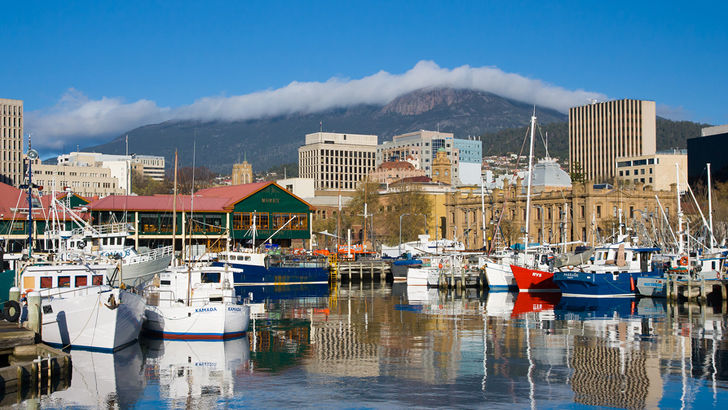Ask the Experts: How can young parents get ahead financially?
By Susan Hely
NAME: Jennifer and Toby
STATUS: 32-year-old married couple with a two-year-old daughter, Emily.
QUESTIONS: How do we accelerate our wealth? Should we continue to build our savings in our 100% mortgage offset account or should we invest in a portfolio of listed shares, ETFs and bonds? What is the outlook for our two Perth properties?
ANSWERS: Pay down your property debt and diversify your wealth into other investments. Don't sell your Perth properties and you can consider buying a Hobart property.
With so many investment experts giving different advice on what financial path to take, Jennifer and her husband are stumped about which way to go. "We work hard and hence feel we have a lot to lose if we make the wrong decision at this point of our lives," she explains.
She says the fear of making the wrong investment decision means they have "analysis paralysis". They read lots of information about investing, crunch the numbers, weigh up the options but don't do anything.
Jennifer and Toby moved to Perth 10 years ago to tap into the halcyon mining boom. "We want to make hay while the sun shines," she says.
They found well-paid jobs and saved hard by keeping their living expenses low. So far they have survived the mining bust that rocked the Western Australian economy in 2015 but has levelled out.
To date their wealth-building strategy has been centred on property. Several years ago they bought an investment property in a popular Perth suburb, paying off the interest-only loan.
Last year they bought a three-bedroom townhouse to live in but expect they will upscale to a bigger home in five or so years.
They are also thinking of moving back to Hobart one day to be closer to family.
Their main question is: what is the best strategy for their savings?
At the moment they concentrate on maximising the balance of the 100% mortgage offset account to effectively "save" 3.95% on the loan on the principal place of residence.
But they wonder if they are better off investing in listed shares, ETFs and bonds? As they have a long investment horizon, they can benefit from performance that historically can outstrip property - particularly the lacklustre Perth market - over the long term.
Or are there any other investment strategies, particularly tax-effective ones, that they should consider?
Six paths to wealth, says Pippa Elliot, is a financial planner with over 20 years' experience and is the managing director of Perth-based Momentum Planning
You're entering the most expensive time of life - growing a young family with plans to reduce to a single income. You've built a great foundation and you have options, which all depend on your decision around moving to Hobart.

I see your wealth position growing from a base today of under $1 million up to possibly $2.18 million over the next 10 years, depending on which way you go.
Across scenarios, your total wealth outcomes are similar - because it's not so much the investments driving your wealth creation, it's your earnings and savings rate. You need to focus on not "losing" money (through diversification) and focus less on "making" money. Even the debt reduction option sees you in a strong position.
You are prime candidates for getting personal financial advice and I implore you to seek this out, so that you can confidently move towards your short-, medium- and long-term goals.
All options assume Jen takes five years off work to grow the family and returns to work earning $80,000pa. Your annual living costs are $80,000pa. You could:
1. Stay in Perth and focus on clearing home debt by 2027-28 at 41-42. This would involve applying all available surplus to your debt and being disciplined.
2. Move to Hobart in 2020, spend $900,000 on a new home, borrow $720,000 and use offset cash as a deposit. Keep the Perth properties as rentals. Debt would be $1.74 million and this is therefore the greatest risk option, heavily overweight to property.
3. Stay in Perth and direct $100,000 now and all surplus cash flow over the next 10 years to a diversified portfolio in Jen's name - 100% Australian and international equities. I've assumed a total return (dividends and growth) of 10%pa.
4. Stay in Perth and both salary sacrifice super up to the annual $25,000 concessional cap ($337,000 contributed over 10 years). Beyond this, any surplus cash flow could be directed to your home loan. It has less risk than the diversified portfolio strategy (includes defensive assets and growth assets) but with the tax savings is pretty close to matching the 10-year outcome.
5. Stay in Perth and invest $100,000 of cash in an investment bond, where tax on earnings is capped at the company tax rate rather than your personal rate. If you hold your account for 10-plus years, you get to sell without any capital gains tax.
6. Stay in Perth, invest 100,000 in the investment bond (tax savings but 10-plus year timeframe), then $50,000 in the next 12 months from cash flow into a diversified portfolio (this is more accessible if you need it) and $6000pa each to superannuation as concessional contributions (tax effective and a long-term investment) - so a blend of ideas. This is the strongest outcome of all the Perth models.
I get a sense that family will draw you back to Hobart. However, I would be concerned to see you with such high debt.
If you were to sell your Perth home and use those funds to support the Hobart purchase, then you have a much lower debt level and the opportunity to consider the investment options above.
Hobart is still hot, says Peter Koulizos, chair of Property Investment Professionals of Australia
Both properties are located in suburbs with great capital growth potential. Due to their proximity to amenities and the water, these suburbs have outperformed the Perth property market over the past five years and this should continue for the foreseeable future.
The next part of the property puzzle is to work out what to do next.
There are enough savings to buy another property and whilst keeping the money in an offset account against the principal place of residence and saving 4%-5% interest is an excellent strategy, an even better idea is to use a portion of these funds, borrow some more money and buy a property in an area that should grow at more than 4%-5%.
Thankfully, Jennifer has some local knowledge as Hobart is one capital city where I would suggest she invests.
It has experienced double-digit growth in the past 12 months and I can see that this will continue for at least a couple more years. As they plan to move to Hobart in a few years, buying a property now is a good move.
However, some parts of Hobart will do better than others. I'd suggest buying a character property in the inner-city suburbs of North Hobart, South Hobart or Glebe, making sure that it receives enough sunshine, especially during the winter months.
Local knowledge is critical when looking to purchase a property interstate and all the locals know how important it is to be on the right side of the hill so as to maximise the exposure to sunshine.
Happy house hunting in Hobart!
Reduce the debt and risk, says Lindzi Caputo, a financial planner and manager of wealth management at HLB Mann Judd, helping people achieve their financial goals
Jennifer and Toby are in a strong financial position, so shouldn't be discouraged by adverse property price movements over the short term.
What really drives wealth creation is the ability to save, so their strong savings habit will hold them in good stead.
The decision to either pay down debt or establish an investment portfolio is a dilemma faced by many. In the early stages of wealth building with a young family, the priority should be to remove non-deductible debt first.
So Jennifer and Toby should direct their weekly savings to repaying the mortgage on their family home.

As they point out, an investment would need to generate an after-tax return greater than the 3.95% interest cost of their loan for it to be worth their while.
For an investment to be a more attractive option, it would need to generate a before-tax return of more than 6.48%pa, assuming tax would be payable at their marginal rates.
While this is not a high hurdle to achieve with equity investments over time, with plans to upgrade the family home within the next five years their time frame is too short to ride out the volatility of investing in equity markets.
Such a strategy is too risky and exposes Jennifer and Toby to the chance of losing capital if they had to sell at the wrong time in a market cycle. So the safer route of simply reducing the non-deductible debt makes sense.
For an equity-type investment to be worthwhile, six or more years are needed to give markets enough time to recover from downturns.
Once Jennifer and Toby's non-deductible debt represents less than 50% of the value of their home they could look at other longer term wealth-building options such as an equity-type investment or perhaps making additional contributions to super.
Future investment decisions should look to improve the diversification of their wealth.
They should avoid becoming too reliant on the returns of a particular asset class, which can make wealth more susceptible to market fluctuations. Spreading wealth across different asset classes lowers the risk of investing.
Want to appear in Ask the Experts and receive free financial advice? Email [email protected]. You must be willing to be photographed.
Get stories like this in our newsletters.



